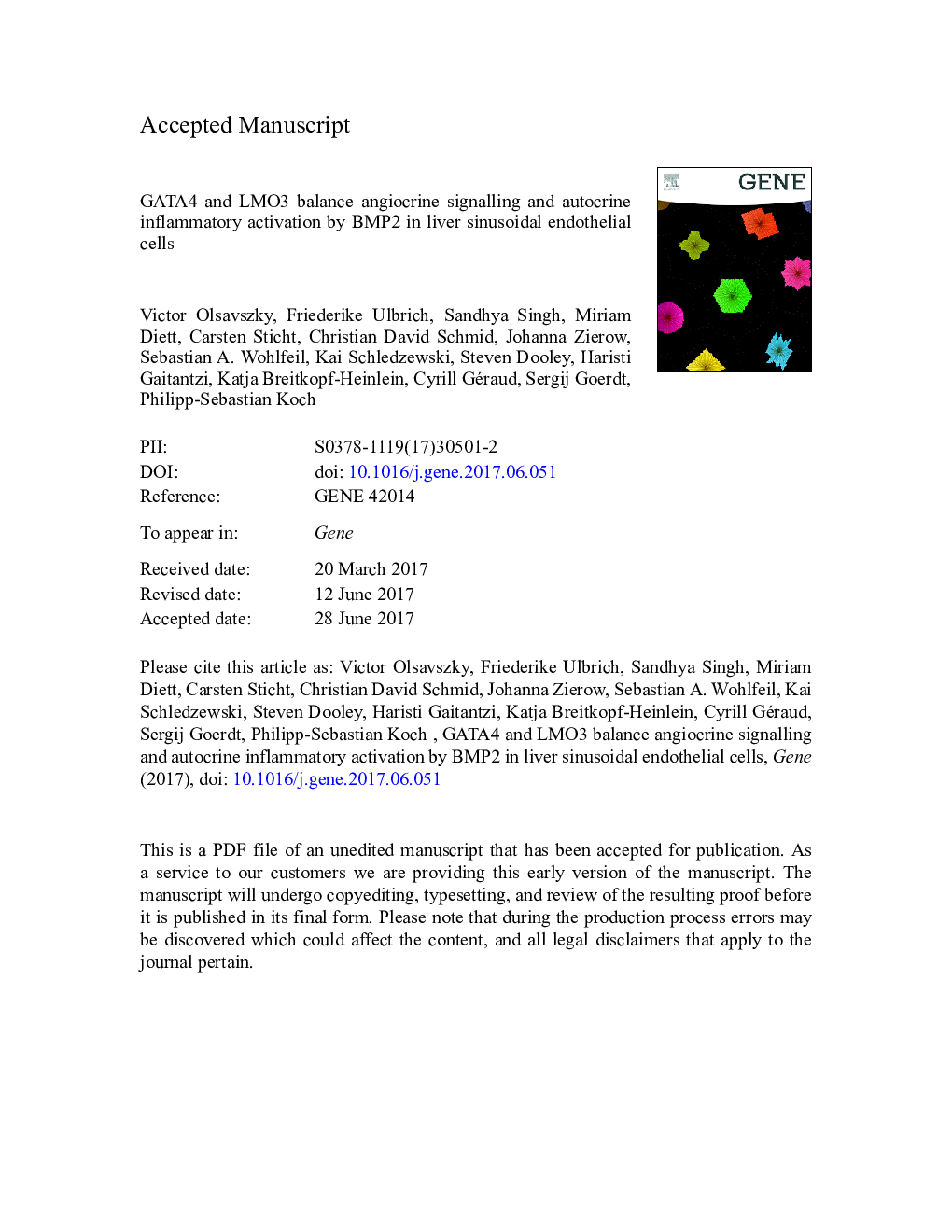| Article ID | Journal | Published Year | Pages | File Type |
|---|---|---|---|---|
| 5589661 | Gene | 2017 | 30 Pages |
Abstract
Liver sinusoidal endothelial cells (LSEC) represent a unique, organ-specific type of discontinuous endothelial cells. LSEC instruct the hepatic vascular niche by paracrine-acting angiocrine factors. Recently, we have shown that LSEC-specific transcriptional regulator GATA4 induces expression of BMP2 in cultured endothelial cells (EC) in vitro. Furthermore, angiocrine Bmp2 signaling in the liver in vivo was demonstrated to control iron homeostasis. Here, we investigated GATA4-dependent autocrine BMP2 signaling in endothelial cells by gene expression profiling. GATA4 induced a large cluster of inflammatory endothelial response genes in cultured EC, which is similar to previously identified virus-induced and interferon-associated responses. Treating the cells with the BMP2 inhibitor Noggin counter-regulated the GATA4-dependent inflammatory phenotype of EC, indicating that BMP2 is indeed the major driver. In contrast to continuous EC, LSEC were less prone to activation by BMP2. Notably, GATA4-dependent induction of the inflammatory EC response gene cluster was attenuated by over-expression of the LSEC-specific transcriptional modifier LMO3 while hepatocyte activation was fully preserved, indicating conserved BMP2 synthesis. In summary, our data suggest that transcriptional counter-regulation by GATA4 and LMO3 in LSEC prevents autocrine induction of an inflammatory phenotype, while maintaining angiocrine BMP2-mediated cell-cell communication in the liver vascular niche.
Keywords
GATA4HUVECqRT-PCRkiloDaltonkDacDNAComplementary DNAMouse hepatocytesLSECempty vectorfold changeGene regulationMicroarrayliver sinusoidal endothelial cellEndothelial cellHuman umbilical vein endothelial cellsEndothelial cellsMHCquantitative reverse-transcription polymerase chain reactionWestern blotbone morphogenetic protein (BMP)
Related Topics
Life Sciences
Biochemistry, Genetics and Molecular Biology
Genetics
Authors
Victor Olsavszky, Friederike Ulbrich, Sandhya Singh, Miriam Diett, Carsten Sticht, Christian David Schmid, Johanna Zierow, Sebastian A. Wohlfeil, Kai Schledzewski, Steven Dooley, Haristi Gaitantzi, Katja Breitkopf-Heinlein, Cyrill Géraud, Sergij Goerdt,
